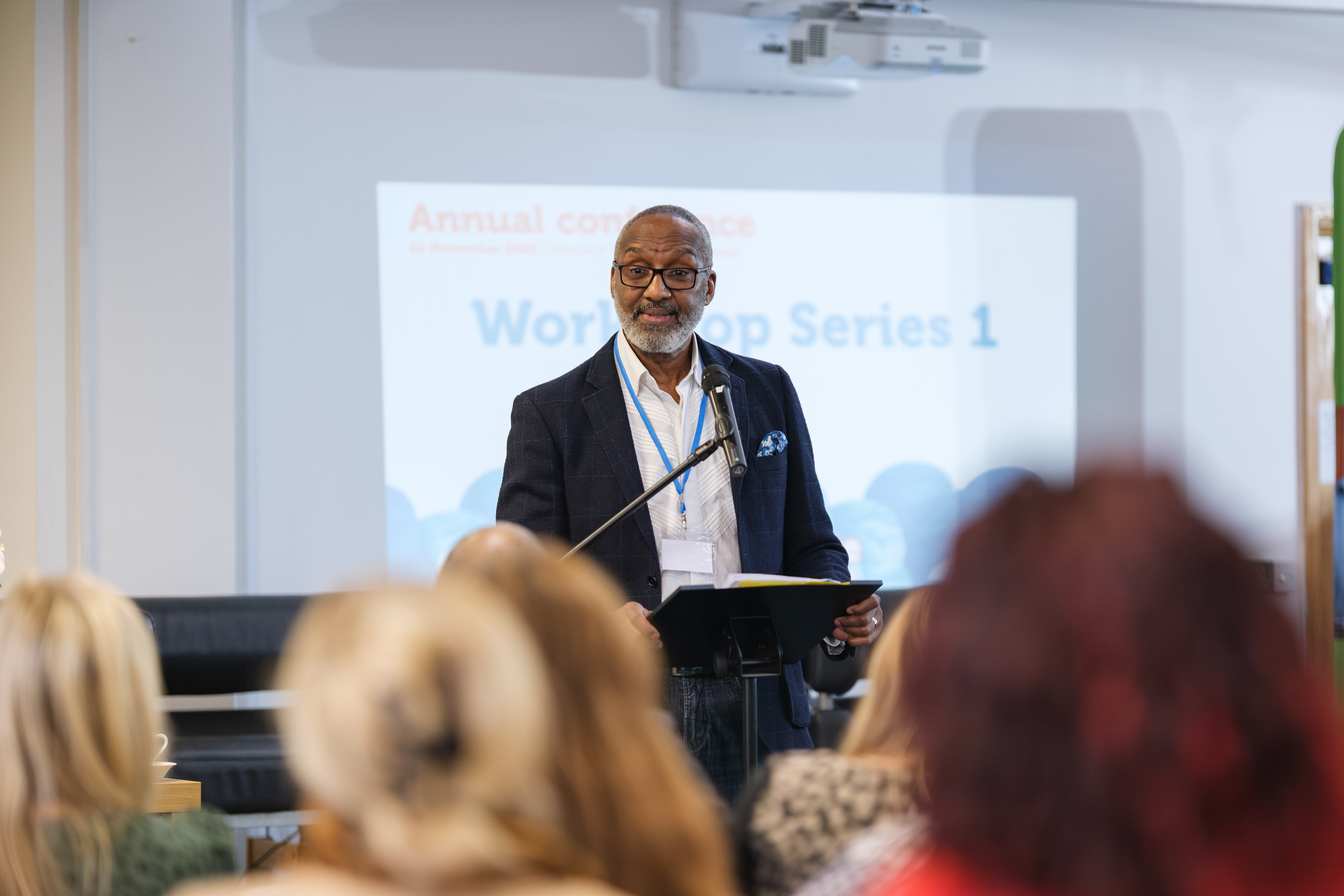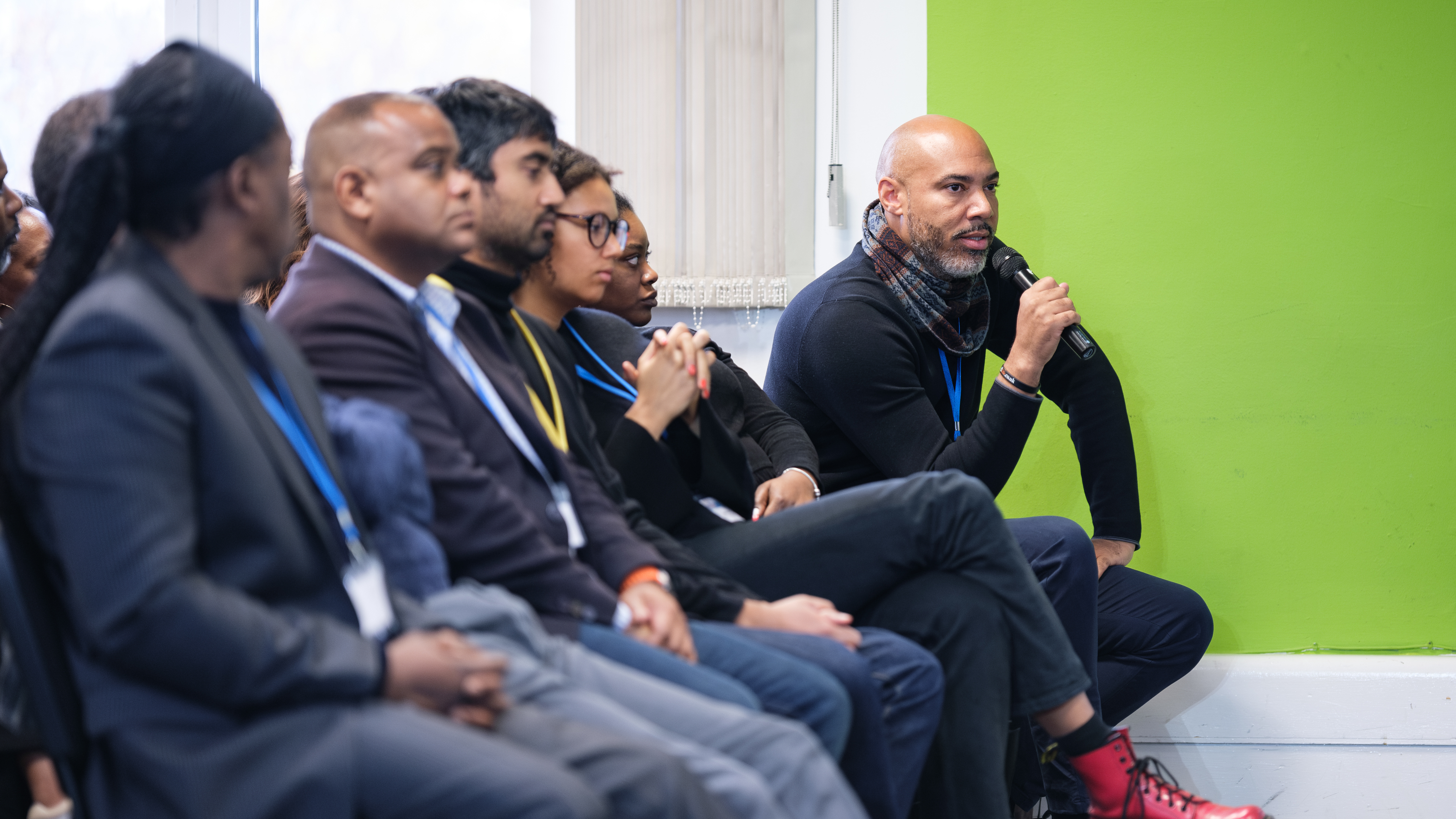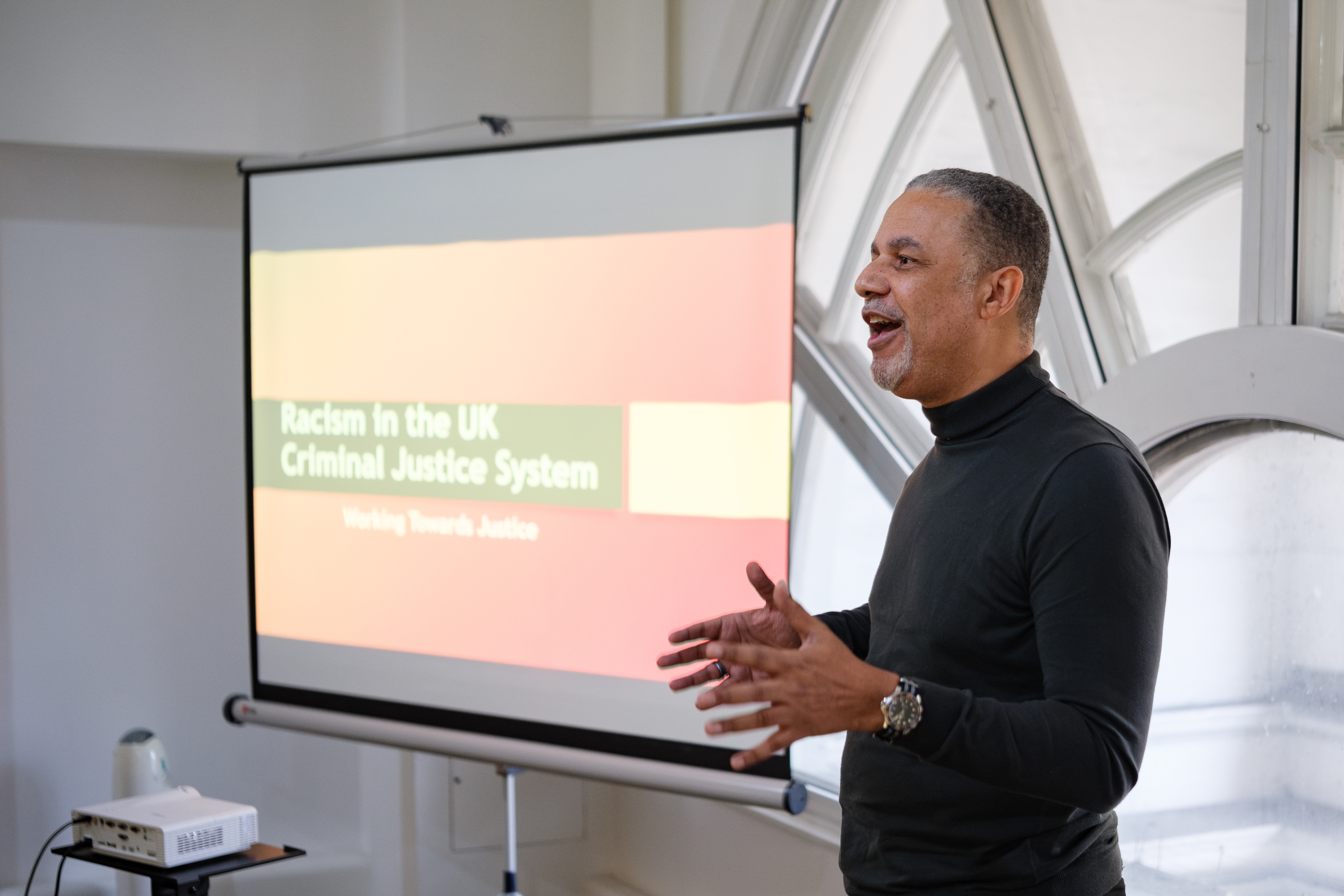Making race and justice everybody's business
Clinks’ 2023 annual conference focused on making race and justice everyone’s business. We platformed organisations led by and for racially minoritised people in the criminal justice system. The conference addressed difficult questions about racism, inclusion, cultural competence and how to create meaningful change. For some, it is a time to listen and understand how to be part of the solution; for others, it is a space to share experience and expertise.
Starting the day
The day opened with a poem from Malcom Farrell, aka CheekyChecki, setting the tone of vulnerability and reflection. We then moved into the first panel on racial inequity in the criminal justice system. Clinks’ newly announced Race and Justice Manager, Lorraine Maher, hosted the day. The panel discussed the intense feeling of mistrust from people towards the criminal justice system. Systems that don’t work for the cultures, practices and sometimes languages of communities caught up in them. Viv Ahmun (Q-Seed) spoke of the trauma he carries with him, even after years of therapeutic work, while Carver Anderson (Bringing Hope) shared his sadness at how little has changed in the 25 years he has worked in social and community spaces. Grace Preston (Traveller Movement) reflected on the lack of institutional protection for Gypsy, Roma and Traveller communities.
But there were also glimmers of hope – Rose Lewis announced Sistah Space secured a building to open the first refuge for African and Caribbean heritage women. Black Men 4 Change and Forward proposed a new initiative, Q-Seed, in allyship with Clinks and Change Grow Live. Q-Seed aims to enable Black and Global Majority leaders to have their voices heard in national policy debate, build personal and organisational resilience and network with other criminal justice leaders. This pilot development programme is due to launch early this year.

Morning Workshops
Sustainability was the focus of the first series of workshops. Leroy Logan MBE noted a decline in public services and ethical standards and advocated for change through the power of the pen. The discussion stressed the challenges of sustaining change beyond conferences, emphasising the need for continued efforts and collaboration to create a lasting impact.
Josh Stunnell (bthechange) shared insights about building collaborative relationships with prisons and probation in Southwest England. He counselled patience and persistence, ‘Yes, it is a slog to repeat the basics, but where there’s an open door and a listening ear’ and emphasised the need for diversity beyond representation.
The need to choose language carefully to unite rather than divide was a key theme for James Gbesan (Baobab Foundation). He called for a focus on collaboration and understanding rather than fostering competition among different groups. He also listened to people with lived experiences to ensure genuine change and not tokenism.
Stella Wint (Langley House Trust) shared the impact of isolation and a lack of belonging on staff well-being and the steps Langley took to address this. They highlighted how listening to the experiences of both clients and staff, developing culturally sensitive services, and involving them in the decision-making process was vital in creating change. Plans for the organisation include a client EDI strategy and support network, emphasising the importance of inclusivity in creating a supportive environment.
After a short break, the second workshop series focused on the needs of racially minoritised people and providing trauma-informed, culturally sensitive support.
Sean Campbell & Keran Page (User Voice) shed light on the effectiveness of relationships between people on probation and those supervising them and the need for more diverse hiring, especially in senior positions. Their research identified areas for improvement, such as better support for housing, training, and employment. It emphasised the importance of considering lived experiences, cultural beliefs, and financial issues for speakers of other languages.
Speaking ‘from the heart’ Sayda Ashraf (Shewise) identified the many types of trauma and ways in which culture and society can create conditions of oppression. She reminded us that understanding and working with trauma is about being human and recognising that difference is okay; it doesn’t have to be a challenge; it can be an opportunity.
Jemmar Samuels shared Collective Punishment's mission, raising awareness of parental imprisonment and its impact, highlighting the often-overlooked grief and tension between imprisonment and being viewed as a good parent.
Over his session, Mark Blake (Criminal Justice Alliance) called for independent scrutiny of racial equity in criminal justice. He highlighted CJA’s Empowering Civil Society toolkit and encouraged us to use the law as a tool for change.

Afternoon Workshops
After lunch and networking, we returned for the third and final workshop series on influencing the criminal justice system and achieving better outcomes for racially minoritised people.
Understanding anti-racism and challenging existing power structures were crucial takeaways from Leila Usmani’s workshop. Race Alliance Wales takes a holistic approach and builds alliances across intersecting struggles such as feminist, anti-war, and climate justice movements.
We heard from Khatuna Tsintsadze (Zahid Mubarek Trust) about the urgent need for advocacy in spaces where others cannot - or do not - listen to the voices of racially marginalised people. Khatuna argued that racial justice is everyone's duty and that injustice is a risk factor – ‘fairness is the foundation of compliance’. In the same workshop, Dez Brown shared a personal journey from prison to chaplaincy to founding Spark2Life, emphasising the role of faith in many prison narratives. Dez highlighted the criminal justice system's legitimacy issues, the risk aversion mentality, and the limited space for relationship-building due to high caseloads. The voluntary sector, with its focus on relationships rather than risk, offers an alternative approach.
Hibiscus shared insights from their work with Muslim women who often have no recourse to public funds and insecure immigration status. These women face a ‘triple disadvantage’, viewed through a lens of criminalisation rather than support - a ‘triple disadvantage’ which leads to being locked out of diversion and criminal justice community solutions.

Ending the Day
The final panel session considered solutions, including an urgent call from Jeremy Crook (Action for Race Equality) for legislation addressing inequalities. Yvonne McNamara (Traveller Movement) emphasised the need for workforce development, while Gayle Edwards (Empathy Souls) highlighted the structural barriers to racially minoritised organisations participating in policy discussions. The panel agreed that the absence of consequences for policy failures and the need to address the intersectionality of race and other issues were vital. Phanuel Mutumburi – (Ipswich and Suffolk Council for Racial Equality) pointed out that, when tackling climate change, we all do our little bit. The same can be said for eradicating racism– it’s our collective responsibility to work towards a fairer criminal justice system.
A single day cannot do justice to the breadth and depth of the work by organisations led by and for racially minoritised people. We must have ongoing conversation and collaboration between leaders with lived experience and allies willing to stand alongside colleagues and know when to stand back and give up their seats.
Race and justice is ‘everybody’s business; let’s make it everyday business too.
To find out more about Clinks’ work on race or to get involved, please get in touch with Race and Justice Manager Lorraine Maher.
What's new
Blogs
Membership renewals 2026: what members need to know
Publications
Latest on X
The role is for a leader from an organisation focused on racially minoritised people, with expertise in service delivery, policy, advocacy, or related areas in criminal justice. Racial disparities are present at every CJS stage. This role ensures these voices are central in shaping policy to help address and eradicate them. Apply by Mon 18 Nov, 10am. More info: https://www.clinks.org/voluntary-community-sector/vacancies/15566 #CriminalJustice #RR3 #RacialEquity
